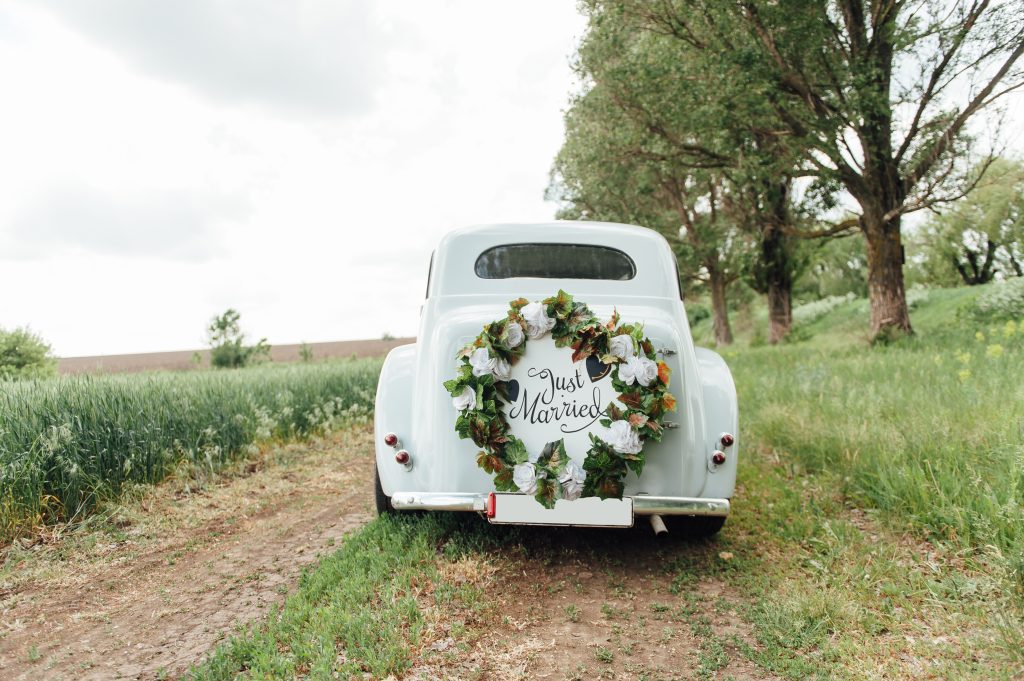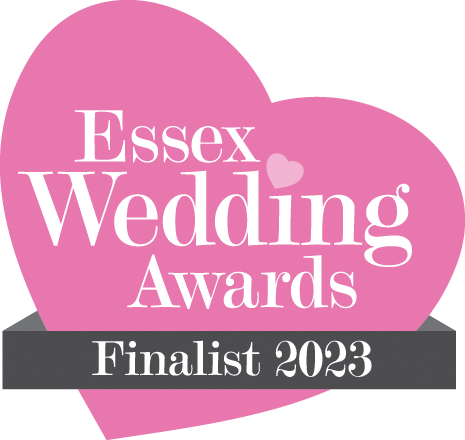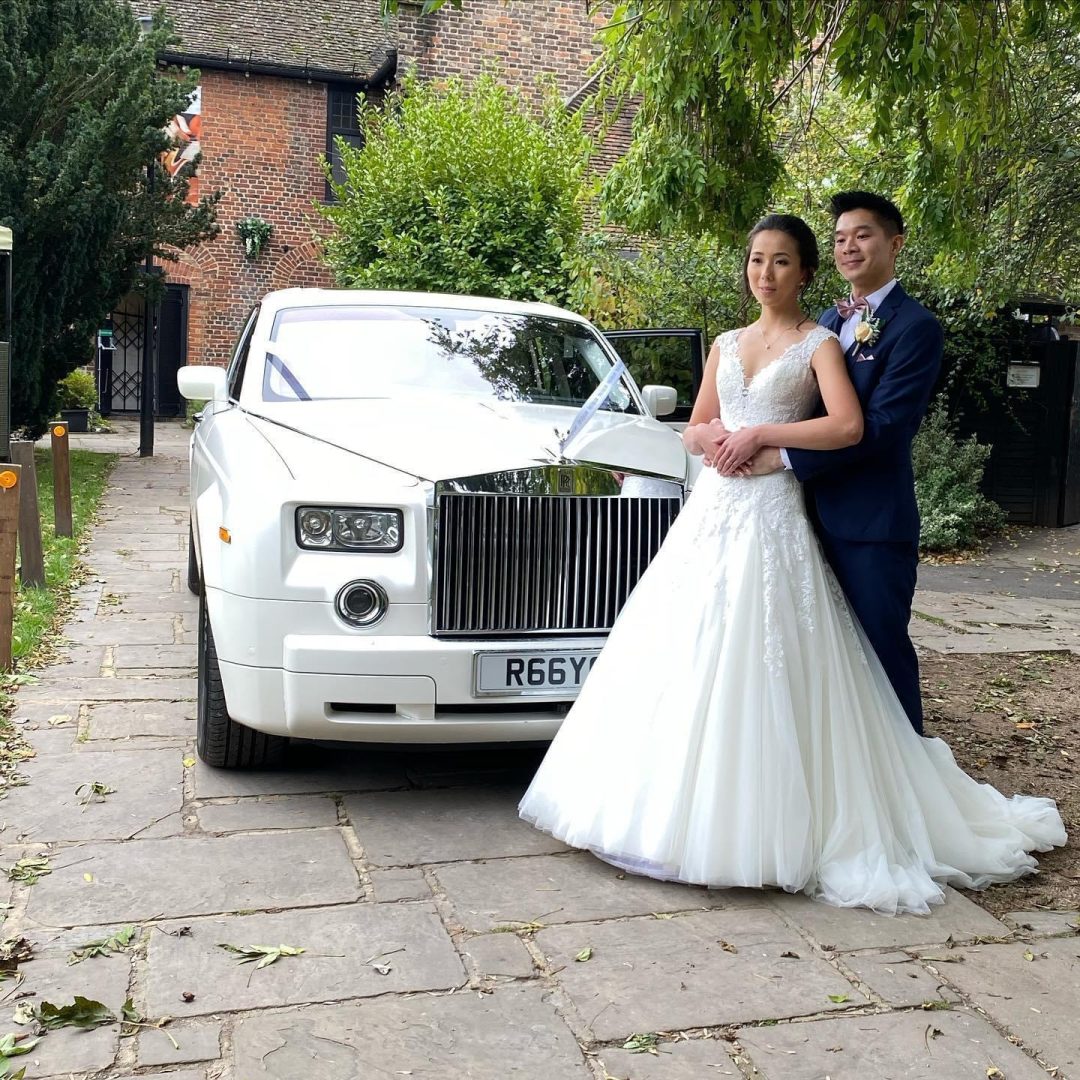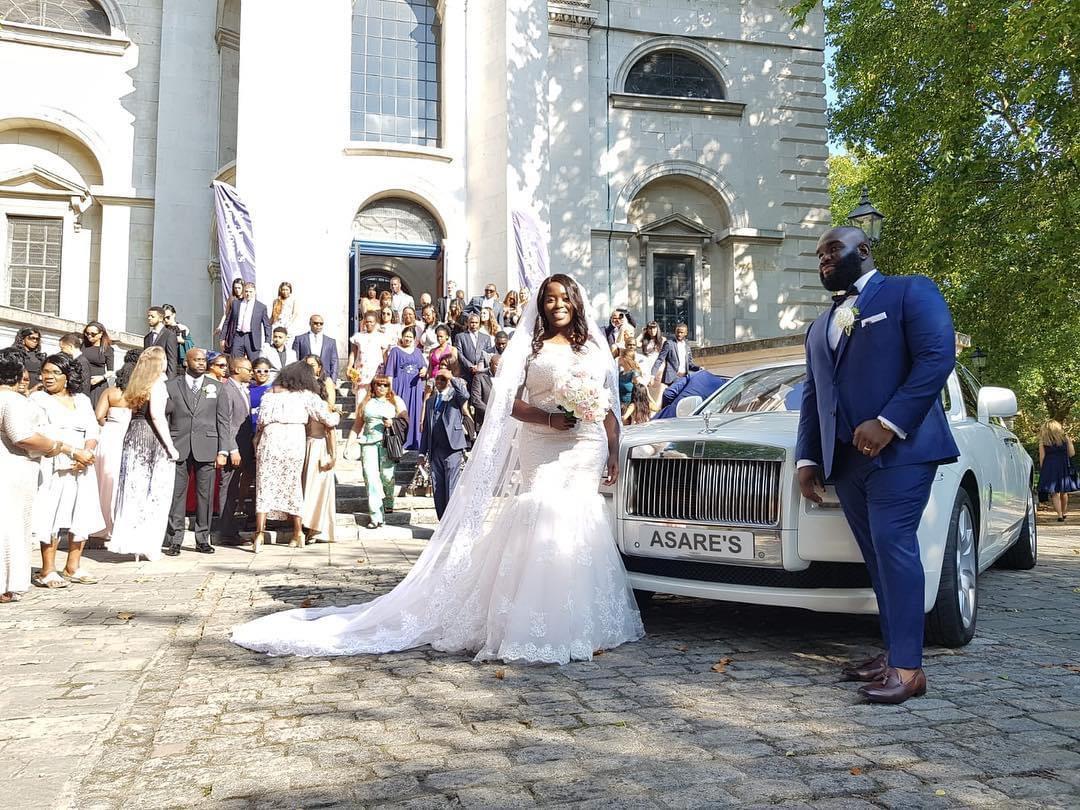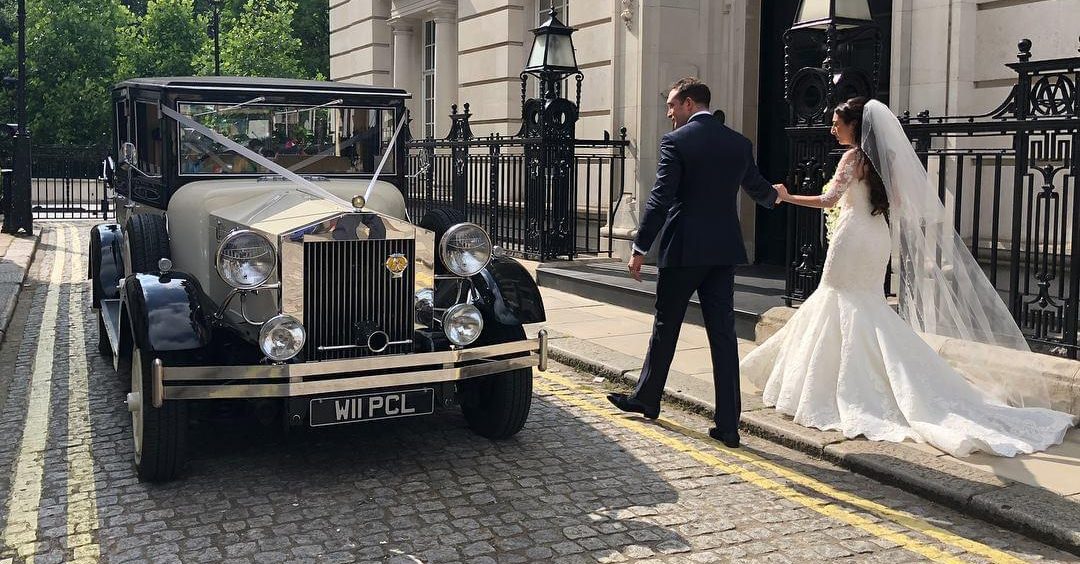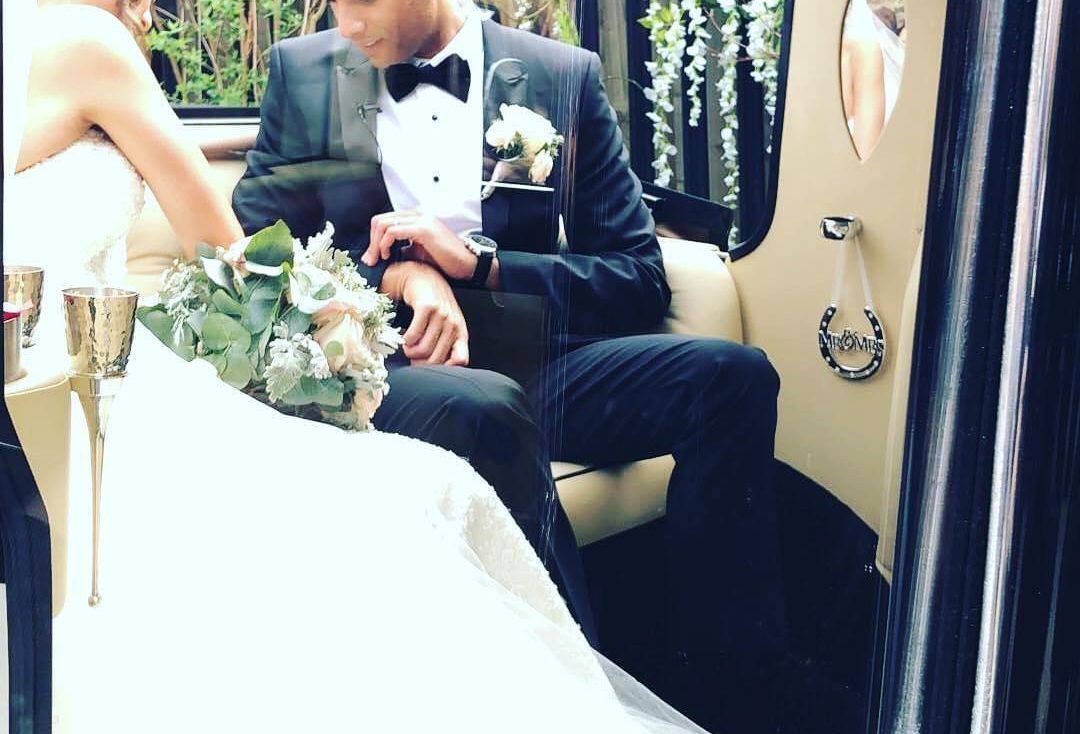A PRACTICAL GUIDE OF WHAT YOU NEED TO DO AND WHEN
A wedding is a special time in anyone’s life. While the idea of planning one might seem scary, it doesn’t have to be. Creating a checklist is a good way to stay on top of what has – or hasn’t – been done.
12-18 MONTHS BEFORE THE WEDDING
While it’s still a long way off, it’s advised to begin the planning of your wedding as far as 18 months out from the big day. That might seem a touch excessive, but it will help to make your event as special as you deserve. Here are some practical steps to take in the 12-18 months prior:
SETTING YOUR WEDDING DATE

Sometimes it’s easy to know exactly what day you want your wedding to be. Whether for sentimental reasons, or practicality, you could already have a period or precise date planned out. If you’re less certain, keep this advice in mind:
THE AVAILABILITY
It’s understandable you’d want the people who mean the most to you to attend. As such, make a point of reaching out to those closest to you and asking what dates they can’t do. Make a note of all of these and try to find a week when there’s no overlap.
SEASON AND POPULARITY
Certain times of year will be more expensive, and book up more quickly. This is typically the case in the summer, as well as the beginning of autumn. It’s not that you won’t be able to book for this time, but it might mean you’ll pay a premium price if you want the venue you had in mind.
WEATHER FOR OUTDOOR WEDDINGS
If an outdoor wedding is something you’re after, you’ll need to keep this in mind. This will rule out winter and even early spring weddings in many locations. Look up seasonal trends and see what time of year is best for your needs.
A PERSONAL MILESTONE
Setting a wedding around a personal milestone is also a good idea for those struggling to decide. This could give your special day even more meaning. Good examples include the day you met, first became an official couple, or even got engaged.
CHOOSING A GUEST LIST
One of the trickier parts of planning a wedding is deciding who does or doesn’t make the cut. You might want to share your celebration of love with as many people as possible, but that isn’t always feasible. Here’s some guidance on how to narrow down your attendees:
SPLIT THINGS EVENLY
Assuming both parties want to, it’s important the bride and groom are given a 50-50 split. Keeping things balanced means both of you are guaranteed to be surrounded by loved ones. Try to do the same with your list of reserves.
PAST, PRESENT, AND FUTURE RULE
This is a good rule to follow for anyone confused about who to invite. The idea is that all guests should tick off at least two of these categories. That is to say, they have been, or will be, a part of at least two of the past, present, or future of your life.
DON’T FEEL OBLIGATED
Sometimes we can feel pressured into inviting people, just to please others. If you have a distant relative, or old family friend you haven’t seen in years, you may not feel comfortable inviting them. If you wouldn’t miss their presence, they probably shouldn’t be getting an invite. If you fancy forgoing the traditional wedding altogether, you could even think about eloping.
MAKE A DECISION ABOUT KIDS
Inviting (or rather, not inviting) kids to a wedding can be an awkward one. Some people will need quite a bit of notice to make sure childcare can be arranged. Letting people know as soon as you can is a good way to avoid tricky conversations down the line.
CHOOSING A BRIDAL PARTY AND GROOMSMEN


Picking just a handful of friends to be a part of your ceremony can be tough. There are probably plenty of worthy candidates, but only a limited number of spots in both the bridal and groomsmen parties. Some handy rules to help you decide are:
DON’T FORGET SIBLINGS
As long as you’re close with them, it’s a good idea to include your siblings in your wedding parties. You could even ask for your brother or sister to be a part of your partner’s group if they’re comfortable with it. This is a lovely way to include family in your ceremony.
TRY TO STRIKE AN EVEN BALANCE
It might be odd if your party consists of six people, but your partner only has three. Try to cap numbers at the upper limit of whoever has fewer. A conventional number is three-to-four, but it can be as many as you both feel comfortable with.
PICK PEOPLE WHO ARE RELIABLE
Sometimes we can feel pressured into inviting people, just to please others. If you have a distant relative, or old family friend you haven’t seen in years, you may not feel comfortable inviting them. If you wouldn’t miss their presence, they probably shouldn’t be getting an invite. If you fancy forgoing the traditional wedding altogether, you could even think about eloping.
DECIDING ON A BUDGET
There’s no right or wrong amount to spend on your wedding. What’s most important is that the figure is something both you and your partner are happy with. Make sure to have this chat before you start booking things in earnest, and consider using the following as talking points:
WORK OUT A % OF CURRENT INCOME
A wedding is rarely cheap. But that doesn’t mean it has to make a serious dent in your finances. A good way to make sure you’re not going to struggle is to set aside a certain percentage of your regular income. If that isn’t enough to cover the kind of wedding you want, reconsider your plan and try to cut costs where possible.
You can lower the overall price by:
- Refining the guest list
- Not using live music
- Use fewer additional vendors
BUDGET FOR SURPRISES
While nobody wants to think about it, having a contingency plan is always smart. You can’t predict hidden costs. Fees for things like setup cost, custom drink pouring, or vendor transportation might not be factors you’ve considered. An emergency budget is a good way to absorb these potential hits.
ONLY SPEND WHAT YOU CAN AFFORD!!
There’s a lot of pressure to put on a spectacle that will be remembered when it comes to weddings. While it’s hard to ignore this, make sure not to stretch yourself thin when it comes to your finances. Only spend the money you have spare to do so.
Remember, while you won’t want to rely on them, relatives will sometimes be generous with donations. It’s an awkward chat to have, but try to get a rough idea of what you might expect ahead of time.
FINDING A VENUE
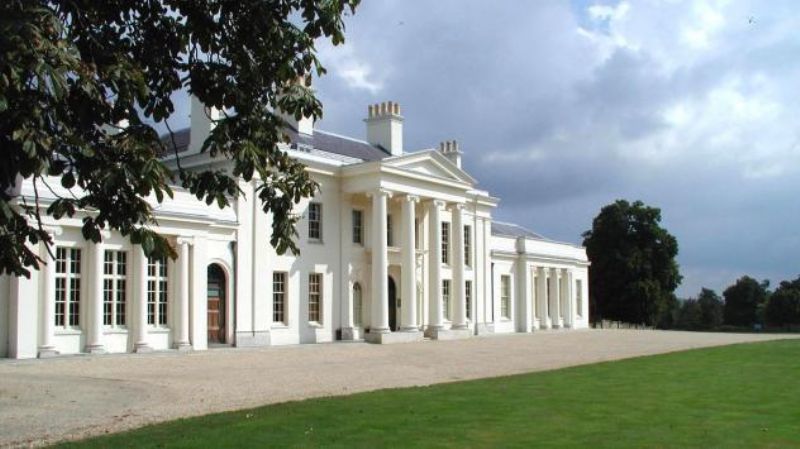

Arguably one of the most important parts of any wedding, you’ll want to make sure you find a decent venue well ahead of time. If you’re finding it a challenge to decide on what you want, keep the following in mind:
CONSIDER YOUR TOTAL GUESTS
You might want a charming intimate venue. But will it be big enough to house everyone? Similarly, you may find the location you want is too spacious for the number of guests invited. Always ask what the recommended and maximum capacity of a venue is ahead of time.
DOUBLING DOWN ON CEREMONY AND RECEPTION
Are you planning on having the ceremony at the same location as the reception dinner? If so, make sure any venues you’re visiting are capable of hosting both. This can be a convenient option, as it reduces the amount of travel needed during the day.
THE STYLE OF YOUR WEDDING
If you have a specific style in mind, your venue will need to accommodate it. For example, a rustic theme wouldn’t really work if your venue is at a high-end hotel. The two need to match up in order for your execution to be perfect.
ASK QUESTIONS
You can never know too much about your wedding venue. The more clued-up you are to how they operate, the better understanding of whether it’s a spot that’ll work or not. Try to come up with a list of questions beforehand to make it easier when you’re there.
DON’T RULE OUT SOMEWHERE ABROAD
Destination weddings are becoming more popular. If you have a specific idea in mind, be sure to take inspiration from others who’ve done it in the past. Just remember it might be a little trickier to plan everything from another country.
HIRING A WEDDING PLANNER
If you’re comfortable handing your wedding planning over to a third-party, a wedding planner could save you a lot of time and potential stress. For something as personal as your big day you’ll want to make sure your planner is someone you can trust to properly execute your vision. Here are some useful tips to remember when choosing yours:
GET RECOMMENDATIONS
We live in the age of reviews. If you have close friends who’ve recently used a planner, reach out to them. It’s also wise to see online what people are saying about someone you’re interested in. You’re giving this person a lot of influence over your wedding. You need to know you can rely on them.
DECIDE ON PACKAGES
Some venues will offer you a planner as part of the full package. This works if you’re not fussy about who you want to work with. However, it might be something you’ll look to avoid if you have a certain person in mind, who you know will do a brilliant job.
HAVE THE BUDGET SORTED AHEAD OF TIME
Making sure your budget is already set will also help. This means you can approach planners with a specific amount in mind. Knowing the budget ahead of time will make it easier for them to be able to work out what is or isn’t feasible for them. This can help you to narrow down your choice.
SENDING YOUR SAVE-THE-DATES


While you might not have all your ducks in a row just yet, it’s good to send some of the guests you definitely want to attend a save-the-date. This gives them the chance to book out time for your wedding well ahead of time. Some good save-the-date etiquette would be to:
KEEP INFORMATION BRIEF
Remember, this isn’t an invite. It’s just a note to guests to let them know where and when you’re hosting your event. You don’t need to go overboard with the details (especially as some of them won’t be finalised yet). Date, time, and location are generally enough at this point.
DON’T SEND THEM TOO CLOSE TO THE EVENT
The primary purpose of a save-the-date is to give people advanced notice of when they need to be free. That means sending them shortly before your actual invites makes them irrelevant. They should be sent no less than a year before the big day.
MAKE IT CLEAR WHO’S INVITED
Write the names of the people who are invited. This is not the time to add “plus one”. You can decide who gets those later down the line. This gives you a chance to see if newer relationships are going to work out in the long term.
WAIT UNTIL THE VENUE IS BOOKED
In order to give your guests the most clarity on where they need to be, you should ideally wait until your venue has been booked before sending them. This gives you a definitive location, which in turn makes it easier for them to plan how to get to you.
9-12 MONTHS BEFORE THE WEDDING
As you creep closer to the ceremony, things begin to feel a lot more exciting. This is the time to start hammering out the fine details of your celebration. It’s during these months that you’ll want to tailor the wedding to match the image you have in your mind. Let’s explore some of the most important aspects of that.
CHOOSING A COLOUR PALETTE OR THEME
At the core of any beautiful wedding is a strong theme. Whether it’s based around a specific flower, colour, or location, having a theme helps to tie everything together aesthetically. Here’s some guidance on the best way to choose yours:
THE SEASON
Colour combinations which work will change according to the time of year. Bright summer colours might not work in autumn. Be sure to do your research and find out what works for when.
AESTHETIC OF THE VENUE
Your colour palette or theme needs to tie into your venue. If you don’t have a specific image of what you want your event to look like, you could even base it around the venue. A good step here is to ask your hosts what colours or styles they would recommend (which have worked before). Taking inspiration from other weddings is a great place to start if you feel confused or unsure.
WHAT YOU ACTUALLY LIKE
If all else fails, pick something you like. This is your big day. You’ll want to deck out your venue in the colours and styles which make you feel happy. This is also something to talk to the venue about, or your wedding planner. They’ll be able to suggest tasteful additions which add the finishing touches to your day.
SHOPPING FOR YOUR WEDDING DRESS
Seen as one of the most emotional parts of wedding planning, shopping for your dress is important. If you want to ensure you’re doing all that you can to get the most out of the experience, make sure to:
RESEARCH ON SOCIAL MEDIA AHEAD OF TIME
The internet has made window shopping much easier. You can now find a dress you like without ever needing to leave your home. Just search on platforms like Pinterest or Instagram for ones you like. You can even send these to bridal shops ahead of time to help them find dresses you might like. You can even use guides to help you better understand the styles, shapes, and sizes of dress available to you.
HAVE A LIST OF QUESTIONS READY
If you have a very specific image in mind, be sure to come with lots of prep. The more questions you ask, the easier it’ll be for those helping you to understand your bigger picture. Here are some examples of questions you could ask:
- Do you have a payment plan?
- Can I do alterations here?
- What kind of colour range do you have?
- What are your range of sizes?
REMEMBER THE WEDDING CLIMATE
A dress needs to be suited to the conditions you’re getting married in. That means light and airy in the summer, and a little heavier in winter time. If there’s a certain style you love, but it doesn’t work the season, you may need to have alterations done.
SHOP AROUND
This is the dress you’ve been dreaming of. Don’t settle on something you’re not wowed by at your first viewing. Don’t be afraid to book multiple shops, or even more than one viewing at the same place (if they plan on getting new stock in).
BOOKING PHOTOGRAPHERS
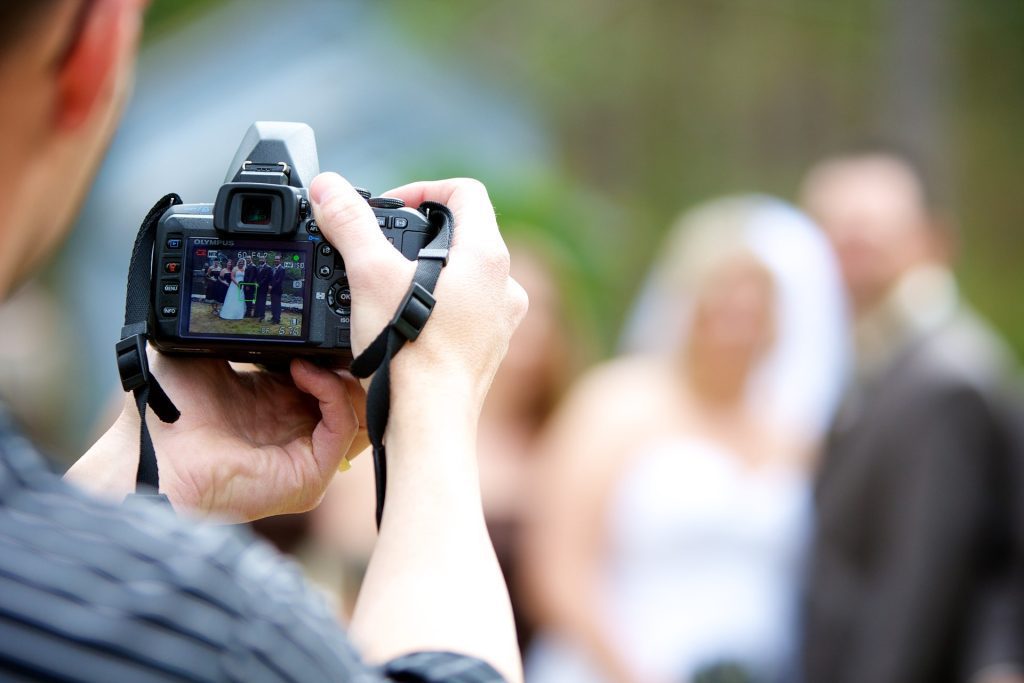

It’s normal to want something as special as a wedding to be immortalised in photographs. That’s why finding a photographer is one of the most important parts of planning – even if it doesn’t necessarily seem like it on the surface. When finding the best one for your needs, make sure to:
HAVE SOME QUESTIONS READY
Being as specific as possible is important with a photographer. They may have a set way of doing things that doesn’t match your image of the day. You need to make sure you’re on the same page. After all, these photos are what will immortalise your special day forever.
Good questions to ask include:
- Do you have a certain style?
- Is there any part of the wedding you don’t or won’t photograph?
- Can we see (multiple) examples of past photo sets?
- How do you handle stressful parts of the day?
- Are you able to operate at any location or time of day?
- How long after the wedding will we receive our photos?
- Do you edit photos at all?
GET REVIEWS FIRST
Just as with any service you’re paying for, make sure to read up on reviews. These will let you know if your prospective photographer can really handle all they claim. Also think about using someone who did a good job for a friend’s wedding.
HAVE A SPECIFIC STYLE IN MIND
Knowing exactly what you want your photos to look like can also help. This makes it easier to pick someone who specialises in that field. Likewise, it gives a photographer who isn’t as confident the chance to tell you they might not be the best fit.
CONSIDER A VIDEOGRAPHER
Most modern weddings aren’t just captured in photos, but video as well. Make sure your photographer is capable of doing both, or that you specifically hire two different people if this is something you want to pursue.
BOOKING CATERERS
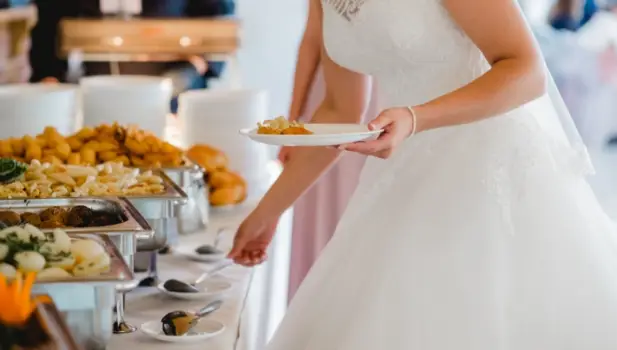

Your dinner is one of the most memorable parts of a wedding. In order to leave people with a pleasant taste in their mouths, it’s smart to do some research and find a caterer which really works for your needs. One of the best ways to do that is by asking questions. Here are some of the most useful:
TRY TO HAVE A ROUGH MENU IN MIND
Approaching a caterer with a theme, or even a rough sketch of a menu, can be really handy. They’ll quickly be able to say if they can accommodate your needs or not. In any case where they can’t make your dish, they’ll also be able to offer a similar alternative.
SET A SPECIFIC BUDGET
Setting a price cap can also help. This will allow a caterer to plan, then come back with a rough idea of what a menu could include. Most good caterers don’t use cookie-cutter menus. That is to say, they will base their dishes around your needs and what you can afford. Having that info ahead of time speeds the process up greatly.
MAKE SURE YOU ENJOY THE FOOD
Most important of all, it’s crucial you actually like the chef’s cooking. Make sure to have a taster session with them. This will give you the chance to work out if they’re the right fit for your special day.
THINK ABOUT YOUR WEDDING CAKE
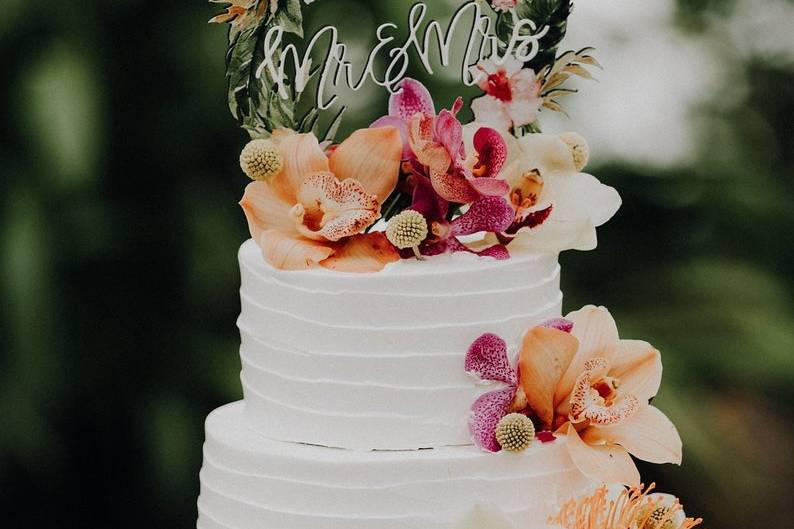

While your caterers might not be responsible for your cake, it’s an important aspect of food on your big day. Start planning what type you want, and ask them if it’s possible to be included in your package. If not, this is the time to begin looking for wedding cake specialists . You’ll need to ensure your caterers are happy to accommodate any third parties.
6-9 MONTHS BEFORE THE WEDDING
As you enter the home stretch, things start to get very real. And that’s amazing, because it means your big day is nearly here. This period gives you the chance to make some finishing touches to your plans. The sooner you get these done, the longer you’ll have to sit back and look forward to the wedding.
ENTERTAINMENT
BE INCLUSIVE OF EVERYONE
Even if you and your partner have a specific style of music you enjoy, make sure to think about everyone. While it’s ultimately your choice, it’s nice for guests to also enjoy themselves. Pick a mix of genres and eras to make sure there are tunes for everyone. One way to cover this is to ask everyone to contribute one song to your playlist.
BOOK EARLY
Bands, musicians, and other performers tend to be busy. That means if you want to secure your ideal entertainment, you need to contact them ahead of time. This is especially important if you’ve planned your evening entertainment around something specific.
UNDERSTAND THE VENUE LIMITS
Make sure to take the time to work out what your venue can and can’t manage. For example, a rustic venue may not have the capabilities to deal with a lot of outdoor electronic equipment. This is something you can ask when planning your event.
FLOWERS
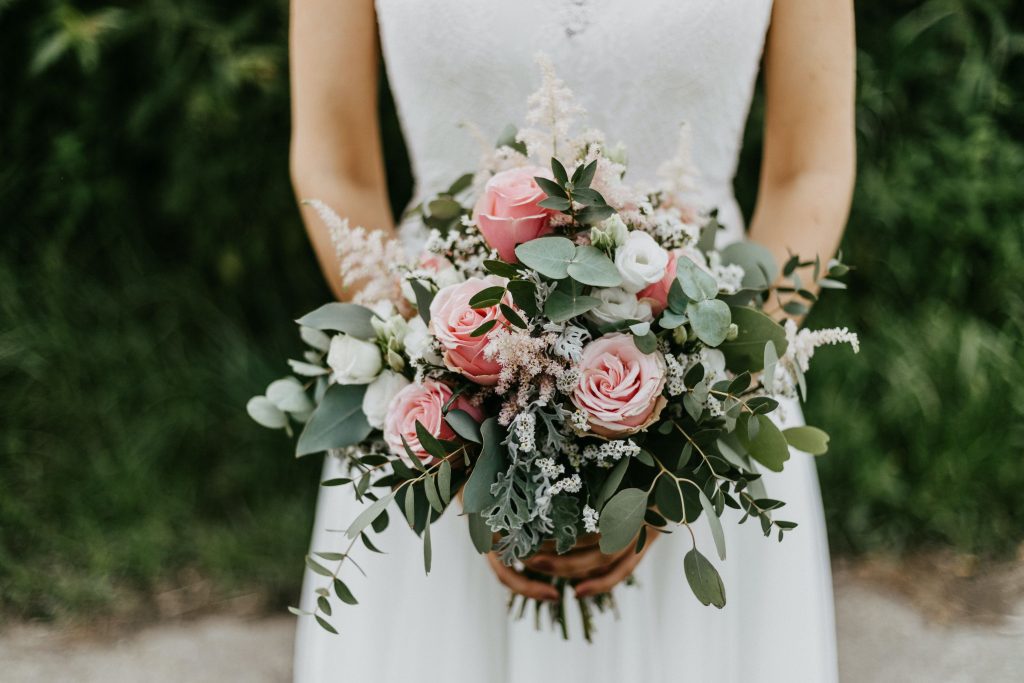

CREATE A FLORAL CHECKLIST
If you know there are certain flowers you definitely want included in your wedding, make a list of them. This is something you can present to your florist. It will help them visualise what’s in your head, as well as making sure you don’t miss any flowers you really want.
HAVE A DEDICATED FLORAL BUDGET
Make sure to free up some of your budget to pay for your flowers. They might cost more than you initially realise. This is another thing to talk to your florist about. They’ll be able to provide you with a range of packages. From there you can pick the one that works best for you.
HAIR AND MAKEUP
ASK FOR PORTFOLIO PHOTOS
It’s important you get to grips with exactly what a stylist can actually do. Make sure to look at past examples of work they’ve done at other weddings. This will give you a good idea of if they’ll be able to pull off the look you’re after.
USE SOCIAL MEDIA TO FIND SOMEONE
Doing some research on social media is a great way to find stylists you like. Some brides will tag their stylists in their posts. Click on the ones you like and see what other work they’ve done.
SCHEDULE A TRIAL STYLING
This is the best way to make sure your stylist is right for you. Even if they’re not quite there with your image, it gives you the chance to hammer out the finer details. Try to book an appointment for everyone who’s getting styled on the day itself. Also ask the stylist to use the same products that they would at your wedding.
HIRING TRANSPORT FOR THE WEDDING DAY
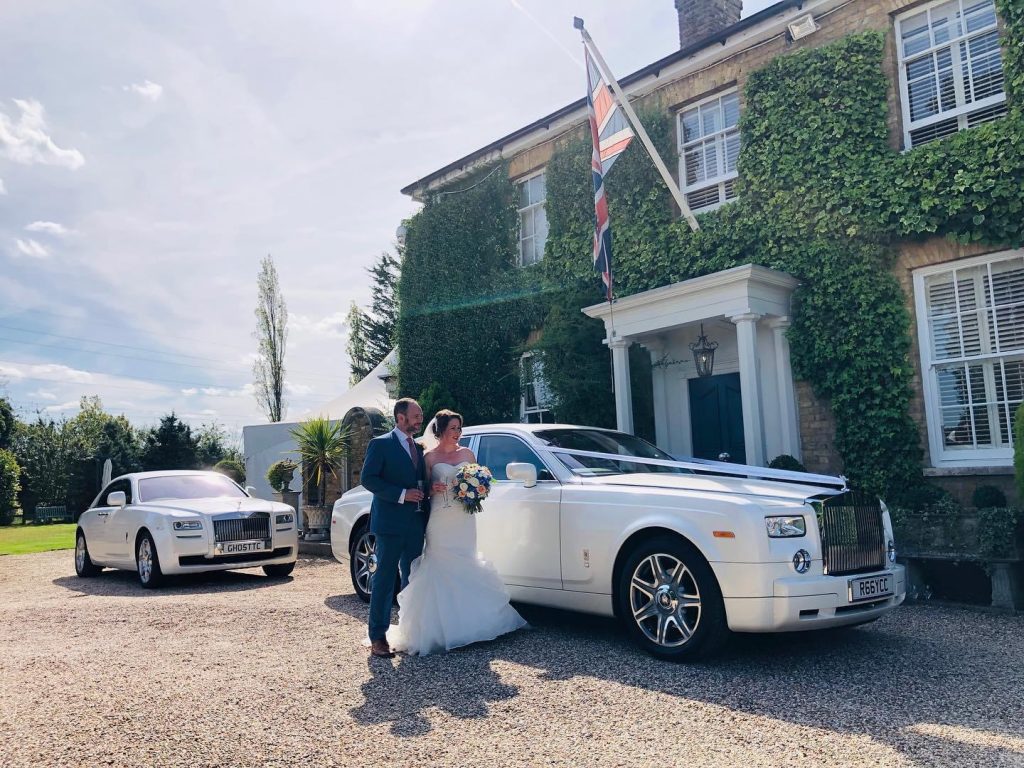

If people have to come from far away for the ceremony or reception, you may need to organise transport. This might sound like a tricky task, but there are ways to make the job easier:
CONSIDER ANY SPECIALIST NEEDS
If there are elderly guests, or anyone who has accessibility requirements attending, they might need additional care when it comes to transport. Make sure to add this on the RSVP. It will give people the chance to discreetly ask for specialist requirements.
TRY TO CREATE A SPECIALISED ROUTE
You might struggle to find a taxi driver who goes door-to-door to pick everyone up. A good alternative is to create a dedicated route with a few stops between point A and B. This makes it easier for people to get to the stopping location nearest to them, even if it isn’t right on their doorstep.
SHOP AROUND
Make sure to ask a number of drivers what they can offer, and how much it might cost. Taking the first offer which works might sound tempting, but you could save hundreds of pounds between providers if the routes are long.
For wedding transportation in and around London and Essex, please contact us for a personalised quote. We are an award winning team with years of experience and we have a wide range of vehicles suitable for all tastes and budgets: www.prestige-carriages.co.uk
This is an abridged version of the article which you can read in full here

